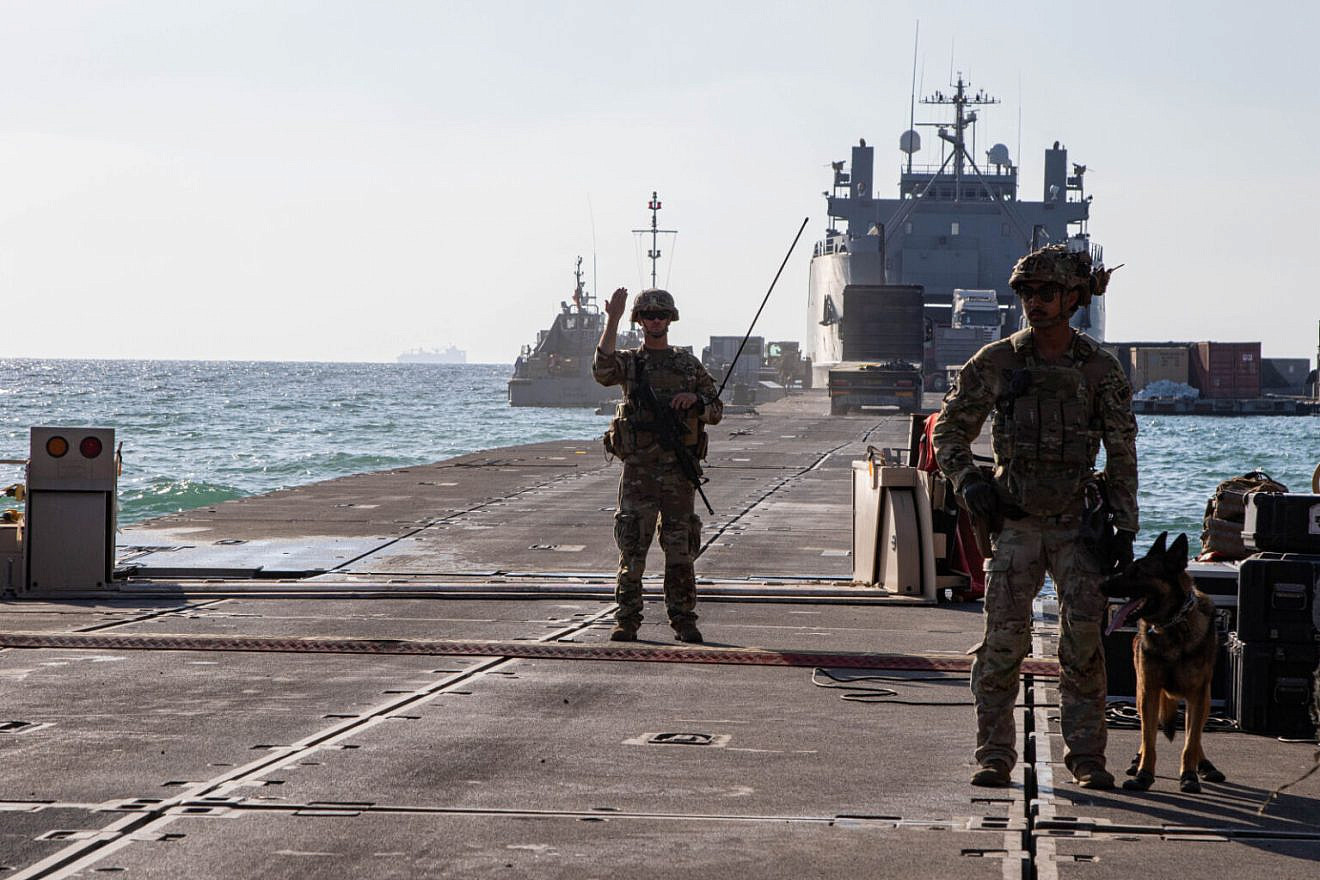Washington is delivering the final six million pounds of aid from the Joint Logistics Over-the-Shore project—the pier anchored to the Gazan shore which was beset by problems until it was retired—the Pentagon said last week.
The U.S. naval container carrier Cape Trinity, which has been transporting aid for months from Larnaca Port in Cyprus, still has the millions of pounds of aid aboard, Sabrina Singh, the deputy Pentagon press secretary, said during a press conference on Thursday.
The JLOTS project, which was used to create a floating humanitarian aid delivery pier off the Gaza coast and an additional pier anchored on the Gaza shore, was first said to cost $320 million. During one of several repairs that the pier underwent, the Pentagon said that the cost was actually $230 million.
The pier, which often needed to be put on hold due to stormy waters, was shuttered in July, and aid deliveries were diverted to Ashdod port in Israel.
The mission, coordinated by U.S. Central Command and the U.S. Agency for International Development, delivered 20 million pounds of aid.
Some of the soldiers and sailors assigned to JLOTS have returned to the United States, Singh said.
The Cape Trinity “just recently left Cyprus and is moving towards Ashdod,” Singh told reporters. “We’re hoping within the next couple of days you’re going to see aid roll off the Cape Trinity.”
The ship would then be re-deployed, she said.
Singh referred a question about when the Joint Logistics Over-the-Shore materials would return stateside to the Army. A Pentagon watchdog is reportedly reviewing the entire project.
“Before President Joe Biden announced the mission in his March State of the Union address, JLOTS was a little-known area of military engineering,” Military Times reported. “The mission was plagued by flaws. The pier buckled under the Eastern Mediterranean’s stormy waters and needed to be repaired in the Israeli port city of Ashdod. It was later removed again to prevent it from breaking again during choppy seas.”
The Pentagon previously said it would play a short-term advisory role in the delivery of aid from Ashdod, but the route would be managed by USAID, the World Food Programme and other agencies.


























